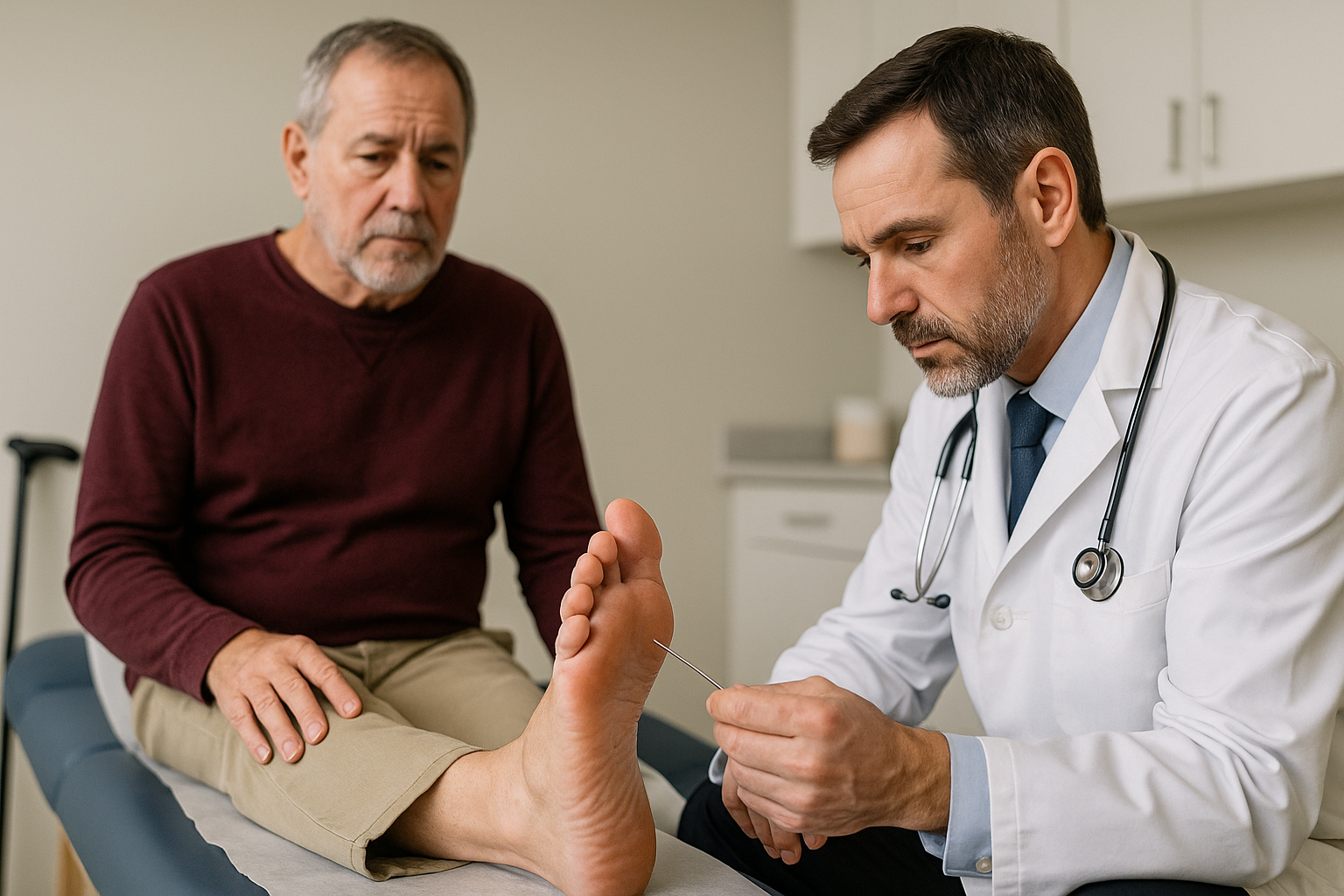Solved: When Is Neuropathy Permanent?

Neuropathy can improve, plateau, or become permanent. The outcome depends on what caused the nerve injury, how long it has been present, and how quickly you receive the proper care. This quick guide shows the signs that damage may last and what you can still do to protect function.
Key Takeaways
Permanence is more likely with long-standing symptoms, severe axonal damage, or untreated underlying conditions.
Diabetes, alcoholism, vitamin B12 deficiency, autoimmune disease, and chronic compression raise the risk of lasting changes.
Red flags include ongoing weakness, loss of feeling, balance problems, or autonomic issues that don’t improve for months.
Early, cause-focused care (glucose control, vitamin repletion, decompression, PT, pain management) can slow or stop progression.
Even when damage is permanent, targeted rehab, bracing, footwear, and skin checks help maintain mobility and prevent ulcers.
What Makes Neuropathy Permanent
Cause matters. Diabetes and autoimmune conditions can damage nerve fibers over time. Toxins, alcohol use, and severe vitamin deficiencies also injure nerves. Correcting the driver early improves the odds of recovery.
Time matters. The more prolonged numbness, burning pain, or weakness persists without improvement, the higher the chance of lasting change. Slow, steady gains over months are encouraging; no change is concerning.
Severity matters. Marked muscle atrophy, foot drop, or significant loss of protective sensation suggests deeper injury to motor or sensory fibers.
Location matters. Chronic compression (carpal or tarsal tunnel, radiculopathy) that isn’t relieved can lead to persistent deficits.
At-a-Glance: What Drives Permanence
| Factor | Why It Increases Risk | What To Do Now |
|---|---|---|
| Uncontrolled diabetes | Ongoing high glucose harms nerve fibers | Tighten glucose targets; foot care; regular checks |
| Vitamin B12 deficiency | Demyelinates nerves and impairs repair | Test and replete B12; review medications (e.g., metformin) |
| Long symptom duration | Less chance for full recovery | Start PT, protect skin, address cause now |
| Chronic compression | Continuous pressure injures axons | Decompression strategies, ergonomics, bracing, or surgery if needed |
| Alcohol/toxin exposure | Direct neurotoxicity | Stop exposure; nutrition support; monitor labs |
Signs It May Be Permanent
Persistent weakness or poor coordination that persists for several months without improvement.
Loss of protective sensation (can’t feel cuts/heat) or worsening numbness despite care.
Autonomic symptoms (blood pressure drops, heart rate swings, heat intolerance, constipation) that remain stable or worsen.
Ongoing pain requiring long-term management with slight functional improvement.
No change despite treating the cause (better glucose, corrected vitamins, stopped offending drugs).
What You Can Still Do
Treat the cause: manage blood sugar, replete B12, address thyroid/kidney/liver disease, stop alcohol/toxin exposure.
Rehab smart: physical therapy for strength and balance; consider AFOs/braces, canes, or walkers if needed.
Protect your feet: perform daily checks, control moisture, wear roomy shoes/insoles, and seek prompt care for any wound.
Reduce compression: update work setup, take stretch breaks, use wrist or ankle supports as advised.
Manage pain: topical agents, oral options, TENS, or interventional care when appropriate—aim for function, not just numbers.
Follow up: objective checks (monofilament, vibration, reflexes) help track change and guide next steps.
Conclusion
Some neuropathy becomes permanent, especially when the cause goes untreated or when symptoms persist for months without improvement. Acting now can stabilize function and reduce complications. Treat the underlying cause, begin rehabilitation, and protect your skin. If you notice new weakness, changes in balance, ulcers, or progressive numbness, schedule an evaluation soon. This guide is educational, and it is not a substitute for personalized medical advice.

About the Author
Dr. Zach Bruley, D.C., is the founder of Advantage Health Center in Eau Claire, WI, and a graduate of Northwestern Health Sciences University. Dedicated to a neurologically based approach, he holds advanced certification in the Torque Release Technique (TRT) and specializes in non-invasive protocols for Neuropathy and Spinal Decompression. Drawing on his background as a competitive athlete, Dr. Bruley established the clinic to provide precise, instrument-based care that supports the body’s natural ability to heal and perform at its peak.



